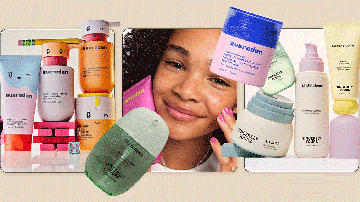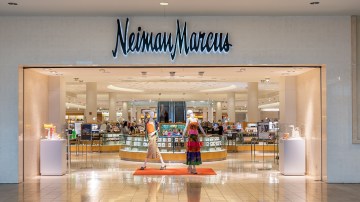When Emily Gittins, founder of the technology platform Archive, was preparing for her wedding last August, she knew one thing for certain: She didn’t want to buy a brand-new wedding dress.
“It just didn’t make sense to me,” said Gittins. “I knew I was only going to wear it once, and it felt wasteful to invest in something that wouldn’t be worn again.” After weeks of scouring online platforms and secondhand boutiques in both the U.S. and the U.K., she found her perfect gown at The Loop, a resale-focused bridal boutique in London. The dress was designer, fit like a dream and cost significantly less than retail. It was everything she’d wanted, but the process wasn’t seamless.
“The experience of finding a secondhand dress was so fragmented,” she said. “There weren’t many curated options, and it felt like secondhand was still seen as ‘lesser than’ in bridal.” But bridal resale is a growing segment, even in the U.S.
The global wedding dress market is projected to surpass $17 billion in 2025, according to a 2025 report from research company Global Growth Insights, and resale platforms are already moving a significant volume of bridal gowns. For instance, the bridal resale company Stillwhite lists nearly 97,000 dresses across 116 countries, and sellers have earned $117 million collectively. The company does not share its revenue.
Brand players are now joining the fray. Archive is partnering with A&Bé bridal shop and Anna Bé bridal boutique, boutique bridal brands known for their curated indie designer collections and growing coast-to-coast presence, to launch Onceloved, an online resale destination for pre-worn wedding dresses. The platform includes both peer-to-peer listings and a collection of professionally cleaned and restored sample gowns from the brand’s network. Dresses are processed through Archive’s logistics partner Tersus to ensure quality, a key difference from previous resale efforts in the space.
Founded in Denver, Colorado by owner Anna Walsh, both companies now span 15 boutiques across the country, including stores in Atlanta, Austin, Boston, Minneapolis, Nashville, Portland, Seattle and, most recently, Charlotte. Anna Bé, launched in 2006, and its sister brand, A&Bé, launched in 2015, are known for a curated, modern and values-led approach to bridal retail.
Onceloved is the company’s third attempt at resale. The first was in 2014, when A&Bé had only two locations in Denver. “We didn’t have enough customer volume or inventory for it to scale,” Walsh said. A second trial in 2020, during the peak of Covid-related wedding cancellations, also faltered. “We were responding to the moment, but we didn’t have the tech or the backend support to make it seamless,” she said.
Unlike past attempts, this launch is backed by national scale, professional cleaning via Tersus, an online resale experience powered by Archive, and marketing that integrates resale into both the companies’ websites and in-store consultations, as well as the brands’ social media.
A&Bé and Anna Bé generate between $15 million–$20 million in annual revenue between them and stock dresses from over 25 designers, including Katherine Tash, Ines di Santo and Danielle Frankel. The launch of Onceloved reflects what Walsh called a “clear shift” in customer behavior: More brides are coming in asking about resale, and some use appointments just to get fitted before buying secondhand elsewhere. “For some, resale is where their journey starts,” she said.
Cost is a growing factor, especially as inflation reshapes wedding budgets. While new designer gowns can easily cost $2,000–$10,000, resale gowns on Onceloved can start at $500. Rental platforms like Rent the Runway and the U.K.-based By Rotation also list bridal looks for as little as $150. “You’re no longer just buying one dress for one day,” Walsh said. “You might want a second look or something for the afterparty, and resale opens up those possibilities.”
But price is only part of the story. Long lead times for custom gowns, often six months or more, and ongoing tariff pressures are nudging more brides toward secondhand. According to 2025 data from The RealReal, demand for wedding dresses surged +247% and wedding shoes +321%, with resale interest in bridal designers like Danielle Frankel (+67%) and Vivienne Westwood (+73%) spiking—thanks in part to cultural moments like Charli XCX’s Westwood wedding look. “Resale gives brides immediacy,” said Gittins. “And it lets them access designers they couldn’t afford at full price.”
Sustainability is another motivator, according to Gittins. “Brides no longer feel like they have to keep their dress forever. Many want to pass it on,” she said. That’s what Onceloved aims to facilitate. The platform includes features like dress requests and a Q&A section for buyers and sellers, making it more community-driven than traditional resale sites.
While resale in bridal remains fledgling in the U.S., Europe has been quicker to adopt circular models. In the U.K., platforms like The Loop and By Rotation are making secondhand bridal more accessible. In the U.S., wedding rentals remain limited, though a few bridal brands, like Galia Lahav, offer resale directly.
By owning the resale experience, A&Bé and Anna Bé are offering something different. “We’re not trying to compete with massive platforms,” Walsh said. “We’re doing something curated and intentional for the bride who already loves our stores and designers.”




